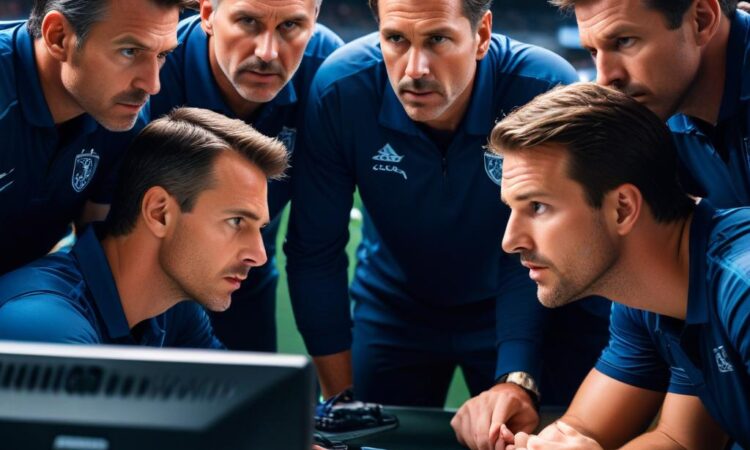Level Up: Esports Coaching Staffs – The Unsung Heroes
Okay, let’s talk esports. We all love watching the crazy plays, the clutch moments, the insane skill. But have you ever stopped to think about the brains behind the operation? The people who aren’t in the spotlight, but are absolutely crucial to a team’s success? I’m talking about the esports coaching staff. They’re the unsung heroes, and their importance is growing faster than a pro player’s K/D ratio.
For a long time, esports felt like a solo endeavor. Think back to the early days – maybe you remember legendary players carrying their teams practically single-handedly. But the professional scene has evolved dramatically. Top-tier competition is brutal. The skill ceiling is astronomically high. Winning consistently isn’t just about raw talent anymore; it’s about strategy, teamwork, and meticulous preparation – things a coaching staff excels at.
So what exactly *do* these coaching staffs do? Well, it’s a lot more than just yelling “GG EZ” (though, let’s be honest, that probably happens sometimes, too!). A comprehensive coaching staff usually includes several key roles:
- Head Coach: The big cheese, the overall strategist, responsible for setting the team’s direction, game plan, and overall culture.
- Assistant Coaches: These guys focus on specific areas like individual player development, scouting opponents, and analyzing gameplay.
- Analysts: Deep-dive stat wizards. They meticulously analyze past games, identifying strengths and weaknesses, both in their team and their opponents. Think of them as the esports equivalent of a football team’s film room.
- Mental Coaches: Esports is incredibly intense. These coaches focus on the players’ mental wellbeing and performance under pressure. Think meditation sessions and stress management strategies – crucial for maintaining peak performance over long tournaments.
- Managers: They handle the logistics – scheduling, travel, contracts, you name it. Keeping the team running smoothly behind the scenes.
The strategic insights provided by a skilled coaching staff are invaluable. They’re not just reacting to what happens in-game; they’re anticipating it. They’ll spend hours studying opponents’ playstyles, identifying predictable patterns, and crafting counter-strategies. They’ll develop detailed draft picks, plan rotations, and tailor strategies to exploit any weaknesses.
But it’s not all about X’s and O’s. Team management is equally crucial. A good coaching staff fosters a positive and collaborative environment. They help players develop communication skills, resolve conflicts, and support each other. They understand that a cohesive team, with strong interpersonal dynamics, is a winning team. This involves building team chemistry, managing individual egos, and providing consistent feedback and support.
Think about it this way: even the most talented individual players need direction and support. A coach provides that. They provide the structure, the guidance, and the framework for success. They help players hone their individual skills and synergize those skills into a cohesive, well-oiled machine. They can identify potential issues before they become catastrophic problems during a crucial tournament.
The growth of esports coaching staffs reflects the professionalization of the industry. It’s a testament to how seriously competitive esports is taken, and how much effort is put into achieving success at the highest level. These staffs aren’t just add-ons; they’re integral parts of successful teams, and their contributions are often overlooked.
So next time you’re watching a high-stakes esports tournament, remember the people behind the scenes. The analysts pouring over spreadsheets, the coaches strategizing in the background, and the managers making sure everything runs smoothly. They are the silent architects of victory, the unsung heroes, and the crucial factor in determining who rises to the top.
The increasing complexity of the game, the rise of meta shifts, and the pressure of global competition are all factors driving the increasing demand for skilled coaching staffs. The investment in coaching is an investment in long-term success. It’s no longer about just finding talented players; it’s about building a winning team with a supporting structure that can adapt and overcome challenges.
In short, esports coaching staffs aren’t just important – they are essential. They are the backbone of competitive esports, and their impact is undeniable. Their contributions deserve recognition and highlight the ever-evolving landscape of professional gaming.
The future of esports will undoubtedly see even greater investment in coaching staffs. As the competition gets fiercer and the stakes higher, the role of these unsung heroes will only become more critical to success.

